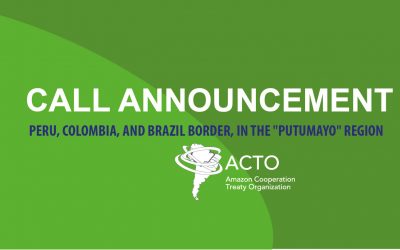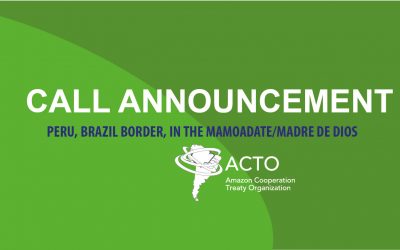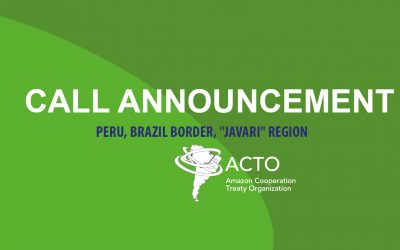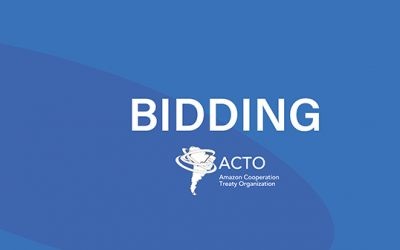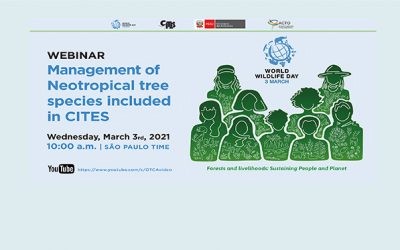ABOUT US
ACTO
Understand the importance of ACTO
The Amazon Cooperation Treaty Organization (ACTO) is an intergovernmental organization formed by the eight Amazonian countries: Bolivia, Brazil, Colombia, Ecuador, Guyana, Peru, Suriname, and Venezuela, which signed the Amazon Cooperation Treaty (ACT), becoming the only socio-environmental block in Latin America. ACTO, with a broad vision of the South-South cooperation process, works in different dimensions within the framework of the implementation of the ACT: political-diplomatic, strategic, and technical, building synergies among governments, multilateral organizations, cooperation agencies, organized civil society, social movements, scientific community, productive sectors and society as a whole.
The Amazon Cooperation Treaty
The Amazon Cooperation Treaty (ACT) signed on July 3, 1978 gave rise to the ACTO, that is oriented to promote the harmonious development of the Amazonian territories in such a way that the joint actions of the Amazonian countries produce equitable and mutually beneficial results in achieving the sustainable development of the Amazon Region.
From ACT to ACTO
In 1995, the eight nations decided to create the Amazon Cooperation Treaty Organization (ACTO), to strengthen and implement the objectives of the Amazon Cooperation Treaty. In the framework of these efforts and challenges, the amendment to ACT was approved in 1998 and the Permanent Secretariat of ACTO was established in Brasilia (Brazil) on December 13, 2002, and installed permanently in March 2003.
The Permanent Secretariat of ACTO
The main roles and functions of the Permanent Secretariat of ACTO (PS/ACTO) are to facilitate the exchange, knowledge, cooperation and joint projection among the ACTO Member Countries to fulfill the mandates of the Amazon Cooperation Treaty.
The Amazonian Strategic Cooperation Agenda
ACTO’s work is guided by the Amazonian Strategic Cooperation Agenda (ASCA) that, within the framework of the ACT, identifies the priorities of the Amazonian countries in the medium term in accordance with the economic, political, environmental, and social reality of the region.
Vision for the Amazon Region
“Achieve sustainable development in the Amazon region reconciling use, protection and conservation of its resources, with equitable conditions that ensure integral sustainable development, effective presence of the State in its different levels of Government and Amazonian populations that fully exercise their rights and obligations in the framework of the national laws in force and international agreements”.
ACTO: Vision of the future
“An Organization that is internationally recognized within the Member Countries and in the international environment as a reference in regional cooperation, discussions and positions on topics of the international agenda related to the Amazon, and sharing experiences, guided by the principles of full sovereignty, respect and harmony with nature, integral sustainable development and reducing asymmetries between the nations of the region”.
ACTO: Mission
“To be a permanent cooperation, exchange and information forum guided by the principle of reducing regional asymmetries among the Member Countries through its actions, cooperating in national processes for socioeconomic progress and enabling a gradual incorporation of these vast territories into the national economies, promoting regional cooperation actions to improve the quality of life of Amazonian inhabitants, and working under the principle of sustainable development and sustainable livelihoods in harmony with nature and the environment and considering the internal laws of the Member Countries”.
ACTO – Strategic objectives
- Facilitate exchange and cooperation among the Member Countries, promoting strategic sustainable development and sustainable livelihoods in the region to improve the quality of life of its inhabitants, with emphasis on vulnerable populations, indigenous peoples, and other tribal communities.
- Ensure that the interests and sovereignty of the Member Countries are respected and promoted.
- Facilitate and foster actions to preserve, protect, conserve and sustainably use the forest, biodiversity and water resources of the Amazon.
- Promote management of Amazonian resources in a context of respect and harmony with nature and the environment.
- Promote and disseminate the cultures of the Amazon, and foster respect and protection of ancestral and current knowledge and wisdom.
- Promote coordination of plans and programs of Member Countries for the development of Amazonian populations, paying particular attention to vulnerable populations, indigenous peoples, and other tribal communities.
Additional files
Strategic Agenda of Amazon Cooperation
Amendment Protocol
Organigrama SP/OTCA
Amazon Cooperation Treaty
Regulation of the PS/ACTO
News
ACTO hires of consultancy for the preparation of reports on the analysis of the health situation of indigenous peoples: Peru, Colombia, and Brazil Border, in the “Putumayo” region
The ACTO opens the selection process of hiring of consultancy for preparing a report about the analysis of the health situation of highly...
ACTO hires of consultancy for the preparation of reports on the analysis of the health situation of indigenous peoples: Peru, Brazil Border, in the MAMOADATE/MADRE DE DIOS
The ACTO opens the selection process of hiring of consultancy for preparing a report about the analysis of the health situation of highly...
ACTO hires of consultancy for the preparation of reports on the analysis of the health situation of indigenous peoples: the Peru, Brazil Border, “JAVARI” region
The ACTO opens the selection process of hiring of consultancy for preparing a report about the analysis of the health situation of highly...
Hiring of a consulting company for the creation and implementation of the Thematic Module of Water Resources
AMAZON COOPERATION TREATY ORGANIZATION – ACTO AND NATIONAL AGENCY OF WATER-ANA Brazil AMAZON PROJECT: REGIONAL ACTION IN THE AREA OF WATER...
Amazon Webinar “Management of Neotropical tree species included in CITES”
Wednesday, March 3, 10:00 am, São Paulo time. The event will be broadcast live on ACTO’s YouTube channel...
Ecuador generates a proposal to strengthen the orchid value chain in the Amazon region (Napo, Morona Santiago and Zamora Chinchipe)
TECHNICAL PAPER SERIES Authors: María Alejandra Gallardo; Germán Esteban Trujillo; Renato Ismael Jaramillo and José Luis Rodríguez MAG...











